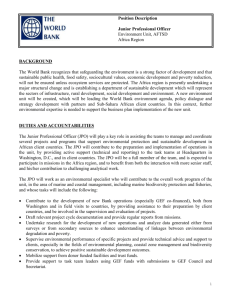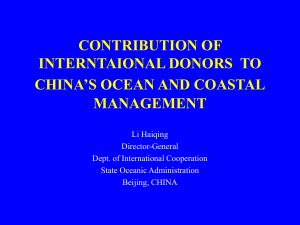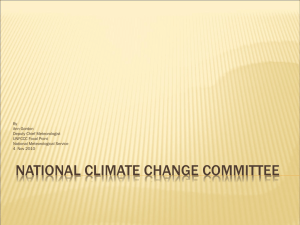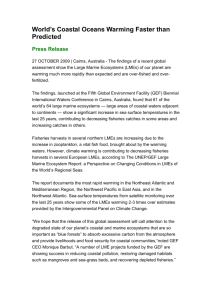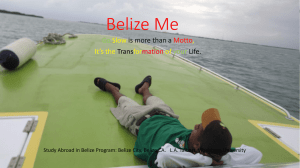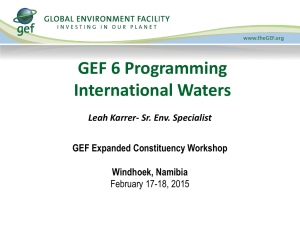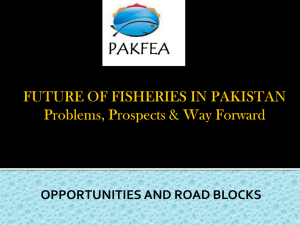Project Concept GEF 6
advertisement
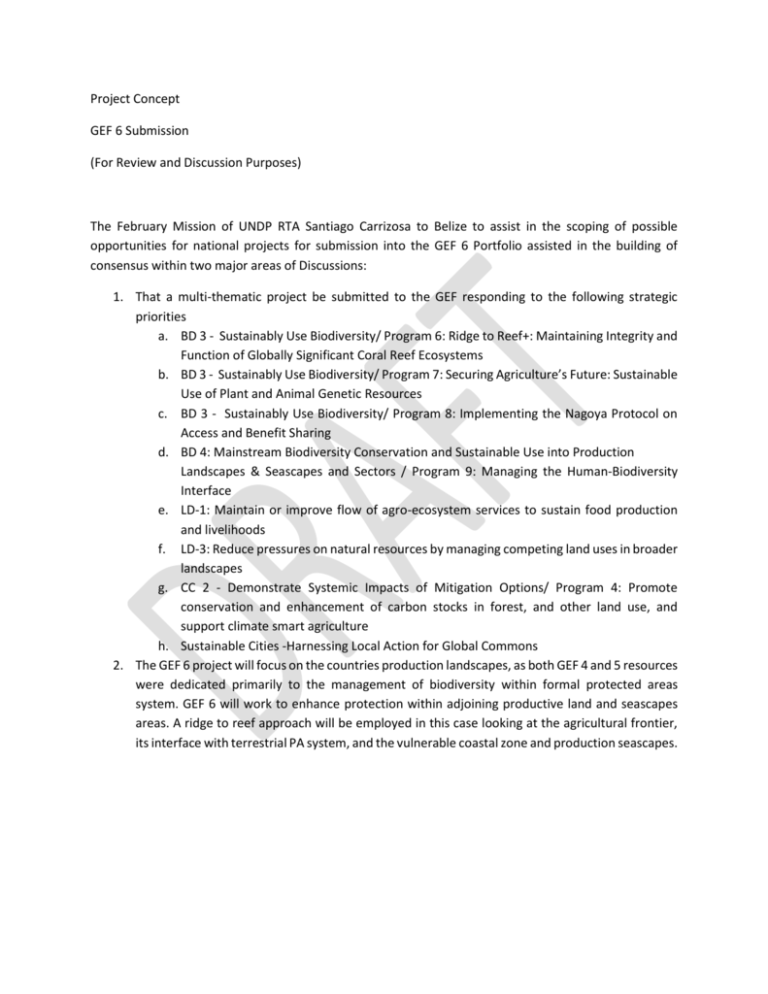
Project Concept GEF 6 Submission (For Review and Discussion Purposes) The February Mission of UNDP RTA Santiago Carrizosa to Belize to assist in the scoping of possible opportunities for national projects for submission into the GEF 6 Portfolio assisted in the building of consensus within two major areas of Discussions: 1. That a multi-thematic project be submitted to the GEF responding to the following strategic priorities a. BD 3 - Sustainably Use Biodiversity/ Program 6: Ridge to Reef+: Maintaining Integrity and Function of Globally Significant Coral Reef Ecosystems b. BD 3 - Sustainably Use Biodiversity/ Program 7: Securing Agriculture’s Future: Sustainable Use of Plant and Animal Genetic Resources c. BD 3 - Sustainably Use Biodiversity/ Program 8: Implementing the Nagoya Protocol on Access and Benefit Sharing d. BD 4: Mainstream Biodiversity Conservation and Sustainable Use into Production Landscapes & Seascapes and Sectors / Program 9: Managing the Human-Biodiversity Interface e. LD-1: Maintain or improve flow of agro-ecosystem services to sustain food production and livelihoods f. LD-3: Reduce pressures on natural resources by managing competing land uses in broader landscapes g. CC 2 - Demonstrate Systemic Impacts of Mitigation Options/ Program 4: Promote conservation and enhancement of carbon stocks in forest, and other land use, and support climate smart agriculture h. Sustainable Cities -Harnessing Local Action for Global Commons 2. The GEF 6 project will focus on the countries production landscapes, as both GEF 4 and 5 resources were dedicated primarily to the management of biodiversity within formal protected areas system. GEF 6 will work to enhance protection within adjoining productive land and seascapes areas. A ridge to reef approach will be employed in this case looking at the agricultural frontier, its interface with terrestrial PA system, and the vulnerable coastal zone and production seascapes. Title: Belize Ridge to Reef: Protecting Belize’s Natural Resource Base through effective integrated Forest, Agriculture, Coastal and Marine management. Estimated Budget: 6.2 Million USD – GEF resources Component 1: Promoting sustainable Agro-silvopastoral Systems for Small Farmers in regions buffering Belize’s Protected Areas network. (Activity will address climate resilient systems; maintenance of ecosystem connectivity; sustainable agriculture and livestock systems- managing three main spatial sequences: forest, pasture-land and cropland; effective soil and water management) - Departments of Forestry and Agriculture (2.2M) Component 2: Strengthening the policy and regulatory framework (e.g. agriculture, fisheries, forestry, coastal zone, land and water management, disaster risk reduction) facilitating true integrated approach to the management of productive landscapes and seascapes. This component will also address national efforts to institutionalize the Nagoya Protocol. The Nagoya protocol is being investigated as a possible instrument contributing to the financial sustainability of effective natural resource management in country. – Ministry of Forestry Fisheries and Sustainable Development, Department of Forestry, Department of Fisheries, Department of Environment (800,000) Component 3: Reforming artisanal fisheries management in Belize. This component will operationalize recommendations and will set in place structures required for the institutionalization of the recently approved Living Aquatic Resource Management Act. (Much of Belize’s production is harvested by the “artisanal sector”. New initiatives such as community access management and Belize’s innovative new fisheries legislation provides the potential for significant improvement in offsetting biodiversity lost through improved management of the productive seascape. These initiatives provide for the allocation of the management of coastal marine areas to local fishing associations via community-based, catch-share agreements and pilots of this mechanism indicates the potential for improved the management of the country’s near-shore marine resources, addressing problems associated with resource sustainability). Project will adopt experiences and best practices from Chile’s Territorial Use Rights in Fisheries (TURFs) - Department of Fisheries (1.5M) Component 4: Managing the land/ sea interface. The management of land-sea interface is considered complex in nature as one must consider both the marine and terrestrial environments in considering interventions. The coastal zone is also home to an increasing number of activities, rights and interests, resulting in additional pressures on the fragile eco-system of the coastal zone. This component will address the health of key coastal ecosystems including mangrove and seagrass communities as well as address pollution runoff issues associated with coastal urban centers. – Department of Forestry, Coastal Zone Management Authority and Institute, Department of Environment (1.5M)
